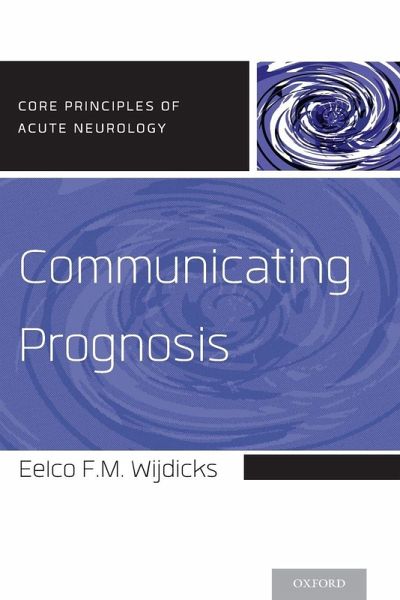
Communicating Prognosis
Versandkostenfrei!
Versandfertig in 1-2 Wochen
68,99 €
inkl. MwSt.
Weitere Ausgaben:

PAYBACK Punkte
34 °P sammeln!
This book centers on practical discussions with family members of patients who suffered a neurocatastrophy. The book summarizes current data on outcome in acute neurologic conditions. It provides guidance in family conferences and how to best convey prognosis. Conflict resolution and how to proceed with palliative care is also discussed.
Prognostication of acute neurologic disease is a major task for neurohospitalists and neurointensivists. The family conference raises the delicate matter of how to decide that outcome is indefinitely poor and how to define disability. This monograph is the first book on how to communicate prognosis in acute neurologic conditions. Communicating Prognosis includes useful data on prognosis in all major neurologic conditions and provides practical advice on how to effectively lead such a conference and how to resolve potential conflicts. This book provides straightforward common sense on- the- spot advice and touches on all aspects of support of devastated families.



